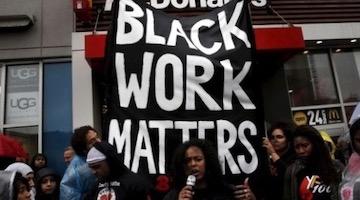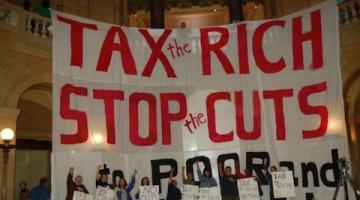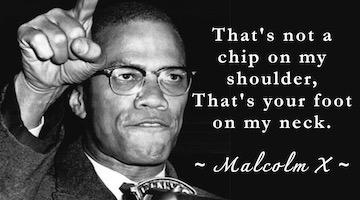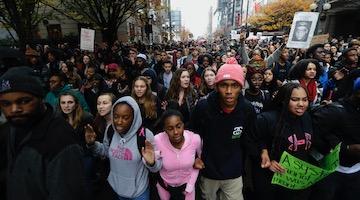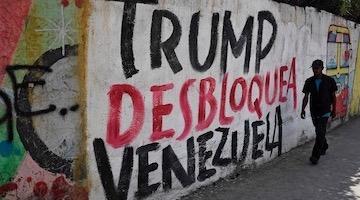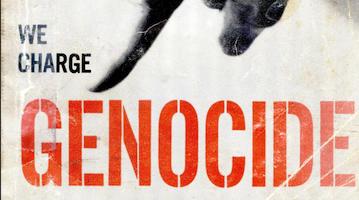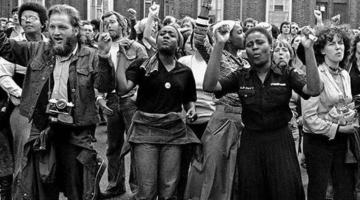Late stage capitalism and its wars have imposed a permanent state of dislocation and disorientation on much of humanity, the “drift” of an unstable system.
“Once they are set adrift, people often invent new forms of community and community activism.”
In this series, we ask acclaimed authors to answer five questions about their book. This week’s featured author is Jeff Ferrell. Ferrell is Professor of Sociology at Texas Christian University and Visiting Professor of Criminology at the University of Kent. His book is Drift: Illicit Mobility and Uncertain Knowledge.
Roberto Sirvent: How can your book help BAR readers understand the current political and social climate?
Jeff Ferrell: My book, Drift: Illicit Mobility and Uncertain Knowledge, chronicles the pervasiveness of drift – of, that is, dislocation and disorientation – in the contemporary world, and shows how such drift emerges from unjust economic and political arrangements. Ongoing civil and transnational warfare spawns swelling refugee populations who remain on the move between one location and the next, consigned by modern nation states to an endless loss of identity. Repressive governmental regimes regularly force the expulsion of dissidents and minority groups. Around the globe, economic migrants wander in search of work, or are simply moved en masse from one work locale to another as economic demand changes. The new consumer-driven economies of global cities dismantle traditional working class and ethnic minority neighborhoods, spawn a precarious work force of part-timers and freelancers, and engender the policing of consumerist enclaves via the dismantling of homeless encampments and dispersing of “undesirables.” Moving from town to town or country to country, sleeping in parks or temporary shelters, haunting alleyways and train stations, those cut loose from social stability find little in the way of spatial or normative certainty.
What do you hope activists and community organizers will take away from reading your book?
People may be forced to drift, but once they are set adrift, they are not without agency; in fact they often invent new forms of community and community activism that can inform our struggles for justice as we negotiate a contemporary world of uncertainty, instability, and inequality. To begin with, drifting often produces a radically subversive way of seeing the world – a comparative sensibility by which the drifter, on the move between social and spatial settings, comes to see that no one social setting or way of life is essential or inevitable. Spatial dislocation and cultural disruption can certainly spawn desperation, but in this way they can also produce alternative ways of understanding the world, and even a kind of free-floating liberation through which old worlds can be critiqued and new worlds can be imagined and undertaken. Relatedly, communities of drifters are often a mix of on-the-fly individuals who share spaces and agendas that can easily enough evaporate. In such communities the social calculus tilts toward the individual, but with mutual support and assistance as needed. The emotional calculus is distinctive as well, reflecting what I’ve come to call intensities of ephemeral association. The long process by which more sedentary groups might establish trust or build social bonds is necessarily compacted; contingencies of time and place, uncertainties as to durability and duration, preclude leisurely negotiations. From a conventional view these characteristics might be seen as weaknesses – but as the book documents, they also become strengths when drifter communities are able to form quickly, then deploy their flexibility and intensity to befuddle powerful opponents and flow around the barriers erected by inequality and injustice.
We know readers will learn a lot from your book, but what do you hope readers will un-learn? In other words, is there a particular ideology you’re hoping to dismantle?
Drifter, migrants, vagrants and vagabonds have long been stigmatized and criminalized; for centuries, the drifter’s particular circumstances – of being on the margins and on the move – have threatened the powerful and the keepers of social order. As a consequence, drifters have regularly been characterized as outsiders and invaders, and they have been stigmatized as too lazy or too immoral to maintain home, career, and social stability. Today, of course, reactionaries and far-right politicians assign these stereotypes to migrants and refugees, characterizing them as criminals and rapists. Drift confronts this stigmatization head-on, arguing that drifters and migrants have time and again been essential to social innovation and progressive social change. It also demonstrates that drifting requires (and hones) depths of courage, types of survival skills, and forms of flexible community that the more sedentary know nothing of.
Relatedly, conventional thinking often blames drifting on those who drift, finding the roots of their dislocation in their “wanderlust” or in their personal deficiencies. Of course some folks do choose to drift; but as the book shows, the vast majority of drifters then and now have been forced into drift by violence, inequality, and economic injustice. Once adrift, they are then aggressively policed in ways that further their marginalization, and all but ensure further drifting. Whether refugees and migrants, or homeless populations and casual workers in global cities, this cycle of being made to drift and then criminalized for it operates as a mechanism of class war and ethnic discrimination as well. To assign blame to the individual drifter is to collude in this injustice; instead we must learn to critique the circumstances that cast people adrift.
Who are the intellectual heroes that inspire your work?
I am inspired by intellectual hell-raisers who have the courage to take on the injustices of the present social order and who possess the creativity to imagine (and fight for) progressive alternatives to it. All of my work is shaped by anarchist and anti-authoritarian traditions: early revolutionary thinkers like Emma Goldman, Peter Kropotkin and Michael Bakunin; historical moments like the 1871 Paris Commune and the Spanish collectives of the 1930s; and a variety of writers and approaches that have emerged over the past few decades such as The Situationists, CrimethInc, punk culture, the Occupy movement, David Graeber, Simon Springer, and others.
Equally inspiring – and especially appropriate to this present project – are the Industrial Workers of the World (aka The IWW, or the Wobblies), an early twentieth century industrial union and social movement that embraced ethnic integration and solidarity, radical direct action, subversive humor, and an in-your-face disavowal of economic and political authority. In the western United States in particular, the IWW succeeded in organizing the wandering, itinerant workers – the hobos – who defined the region, and most remarkably, managed to turn the fluid, drifting nature of their lives and work into a strategy for swarming corrupt economic and political forces and winning key labor battles. Big Bill Haywood, Frank Little, Emma Goldman – Wobbly thinkers and organizers who put their ideas and their lives on the line for a better world. Long live the IWW!
In what way does your book help us imagine new worlds?
Drift and drifters put forth the possibility for alternative forms of community and understanding. Drift itself can constitute a collective common ground, and on this ground new ways of knowing and experiencing the world can emerge. In the same way that drift is both an historical and contemporary phenomenon, so are its politics; drift has more than once been embraced as a fragile but resilient form of human community, deployed as a strategy for flowing around and beyond existing authority, and celebrated as a process of ongoing spatial and experiential liberation. Now, as millions drift though a contemporary world of growing social and spatial uncertainty, these politics have come again. Facing the inevitability of dislocation, some head off on their own; others find ways to recalibrate the need to control and be controlled, and to retune their social expectations to shifting circumstances. Left with little that endures, they manage to make situational magic out of structural malaise, and so to reimagine the very nature of social order and social change. This hard-earned re-imagination of self and society holds the potential for discomfort, but also for a progressive critique of existing arrangements. A moveable famine of dislocation and despair, an ongoing experience of having nowhere to go, drift also spreads a moveable feast of social and spatial possibility.
“People manage to make situational magic out of structural malaise.”
In a contemporary world suffused with consumerism and its overwhelming economic and ecological consequences, drift offers yet another hue of hope. For centuries drifters of all sorts have eschewed material possessions and material comfort, learning to make do on less and to practice various forms of radical self-reliance. This anti-materialism has emerged as a consequence of and necessity for ongoing mobility, but also as a cultural orientation underlying and promoting such mobility. For many people material possessions are today even more numerous – and from a drifter’s view, even more needlessly consumed – than they were decades or centuries ago. Because of this, the need for an understanding of how consumerist needs and wants are constructed, and how they might be escaped, is more critical than ever. Drifters’ long-standing anti-materialist ethos offers such an understanding, revealing the allure of less, and perhaps harbingering forms of floating sustainability by which the planet can yet be salvaged.
Roberto Sirvent is Professor of Political and Social Ethics at Hope International University in Fullerton, CA. He also serves as the Outreach and Mentoring Coordinator for the Political Theology Network. He is co-author, with fellow BAR contributor Danny Haiphong, of the new book, American Exceptionalism and American Innocence: A People’s History of Fake News—From the Revolutionary War to the War on Terror.
COMMENTS?
Please join the conversation on Black Agenda Report's Facebook page at http://facebook.com/blackagendareport
Or, you can comment by emailing us at comments@blackagendareport.com

